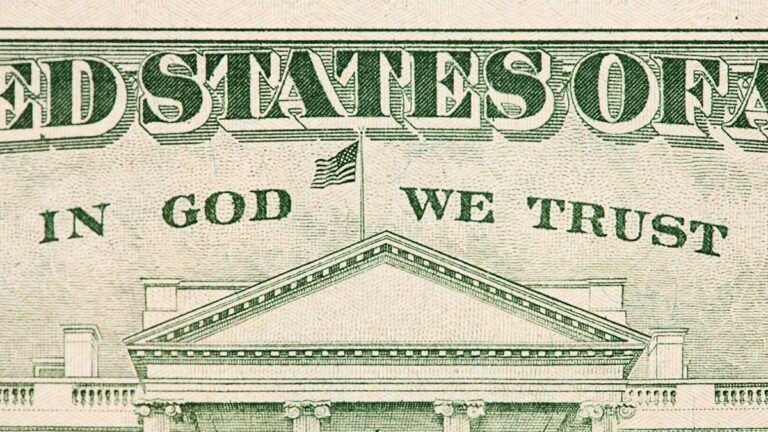In recent decades, the United States has witnessed a marked shift in its religious landscape, with a rising number of Americans identifying as secular or unaffiliated with traditional faiths. This transformation challenges long-standing assumptions about the country’s spiritual identity and carries significant implications for its political arena. As religious affiliation declines and secular viewpoints gain prominence, policymakers and political strategists are reassessing the role of faith in public life. This article explores how America’s evolving religious makeup is reshaping political discourse, voting behaviors, and the future of church-state relations.
America’s Growing Secular Population Redefining Voter Priorities
As the United States experiences a significant rise in individuals identifying as religiously unaffiliated, political campaigns are recalibrating their strategies to resonate with these voters’ evolving priorities. Traditionally, faith-based values played a central role in shaping voter behavior, especially among conservative and moderate constituencies. However, the emerging demographic—often labeled as “nones”—challenges this paradigm by emphasizing issues that transcend religious doctrine. Economic concerns, climate change, social justice, and civil liberties are gaining unprecedented prominence, forcing candidates and parties to rethink what motivates the modern American electorate.
Key shifts include:
- Increased emphasis on secular policy debates: Topics such as reproductive rights, LGBTQ+ equality, and environmental protections are now front and center.
- Declining influence of religious endorsements: Voters from non-religious backgrounds show less sway from traditional religious leaders and institutions.
- Diversified voter coalitions: Political platforms are broadening to appeal beyond faith-based groups, reflecting a more pluralistic society.
| Religious Affiliation | 2010 Voter Priority | 2024 Voter Priority |
|---|---|---|
| Religious | Family values, morality | Economic security, healthcare |
| Secular/Unaffiliated | Neutral | Climate action, civil rights |
| Evangelical | Religious freedoms | Religious freedoms, economic growth |
The Influence of Religious Diversity on Policy Making and Political Rhetoric
As the religious composition of the United States evolves, political leaders increasingly tailor their messaging to resonate with a more diverse electorate. No longer can policies be framed solely through the lens of dominant Christian narratives. Instead, politicians are navigating a complex mosaic that includes growing populations of Muslims, Buddhists, Hindus, and the religiously unaffiliated. This shift compels a reframing of issues such as education, healthcare, and civil rights, encouraging more inclusive language and policies that acknowledge varied belief systems.
The impact on policy formulation can be seen in how lawmakers balance respect for religious freedoms with secular governance. Key areas influenced by religious diversity include:
- Religious accommodation laws: Efforts to broaden protections for minority faith practices in workplaces and schools.
- Social welfare policies: Integration of faith-based initiatives with secular programs to address community needs.
- Freedom of expression debates: Negotiating the boundaries between religious expression and anti-discrimination measures.
| Religious Group | Policy Impact | Rhetorical Shift |
|---|---|---|
| Muslim | Increased focus on anti-discrimination laws | Emphasis on religious tolerance |
| Unaffiliated | Advocacy for secularism in schools | Focus on separation of church and state |
| Hindu | Recognition of diverse cultural holidays | Inclusive rhetoric promoting pluralism |
Challenges and Opportunities for Political Parties in a Shifting Religious Landscape
Political parties today face a complex terrain as religious identities evolve across the United States. Traditional religious affiliations that once anchored party platforms are becoming less predictable, forcing strategists to rethink their outreach and messaging. The rise of religious “nones” — individuals unaffiliated with organized religion — challenges parties to engage with a more pluralistic electorate. This shift creates a double-edged sword: while some parties risk alienating their base by adapting to secular trends, others find new opportunities to broaden their appeal to unaffiliated voters who prioritize issues beyond faith-based platforms.
Key strategic considerations for political parties include:
- Crafting policy frameworks that resonate beyond religious lines, focusing on shared social values and economic concerns.
- Balancing the demands of traditional religious constituencies with the increasing clout of secular and interfaith voters.
- Investing in grassroots movements that reflect the diverse and changing spiritual identities of communities.
| Challenge | Opportunity |
|---|---|
| Declining influence of mainline denominations | Engage with rising religious minorities and secular voters |
| Polarization tied to religious identity | Promote inclusive policies embracing diversity |
| Risk of alienating core religious bases | Expand electorate by appealing to shared civic priorities |
Strategies for Engaging Secular and Faith-Based Communities in Future Elections
To foster meaningful connections with both secular and faith-based voters, political campaigns must adopt tailored communication strategies that respect diverse worldviews. For secular communities, emphasizing policies rooted in evidence-based reasoning, social justice, and universal human rights resonates more effectively than rhetoric focused solely on tradition or religious values. Engaging through digital platforms with transparent, data-driven messaging can boost trust and mobilize younger, more progressive voters who prioritize inclusion and scientific literacy.
Conversely, faith-based groups often respond well to leaders who acknowledge the moral frameworks that guide their lives, while advocating for community welfare and religious freedom. Collaborative efforts that bring together secular and faith leaders around shared goals—such as poverty reduction, education reform, and healthcare access—can bridge divides. Below is a comparison of key engagement tactics that reflect the nuances required to appeal effectively to these distinct constituencies:
| Community | Core Values | Engagement Tactics |
|---|---|---|
| Secular | Reason, Equality, Freedom |
|
| Faith-Based | Morality, Community, Tradition |
|
To Conclude
As America’s religious landscape continues to evolve, the implications for US politics are both profound and complex. The growing number of secular Americans challenges longstanding assumptions about the role of faith in public life, prompting political parties and candidates to reconsider how they engage with religion and spirituality. Understanding these shifts is essential for interpreting the future of policy debates, electoral strategies, and national identity in a country where religion has long been intertwined with political discourse. As this transformation unfolds, observers and participants alike will need to navigate a changing terrain where secular voices grow louder, reshaping the conversation around faith and governance in the United States.




